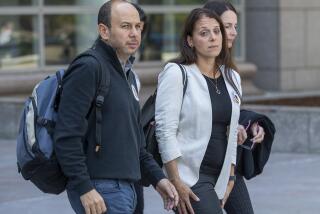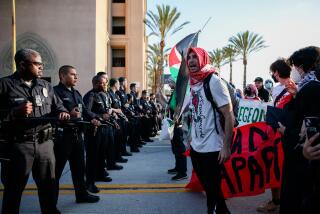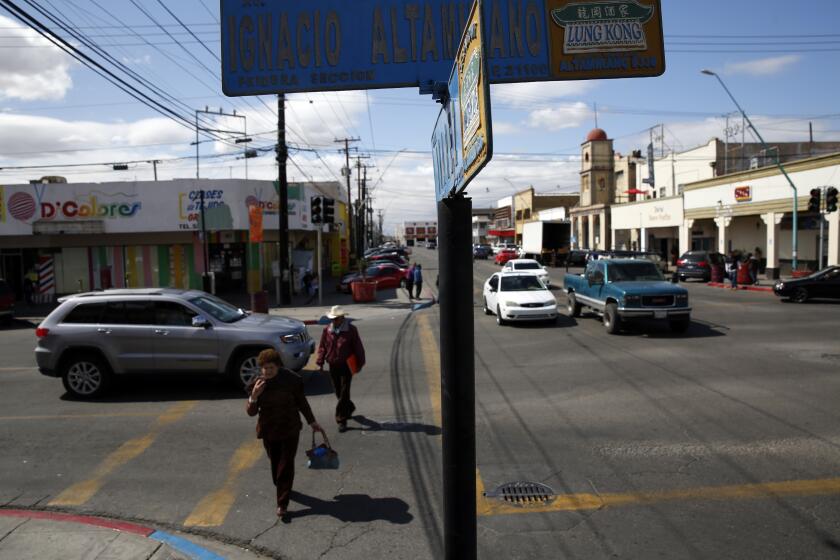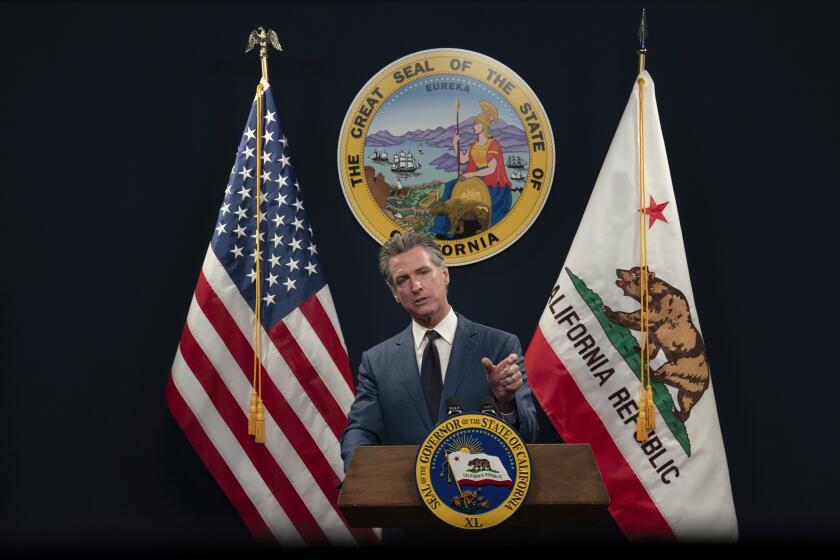Searching for New Coalitions
When Tom Bradley was first elected mayor in 1973, his campaign was powered by South-Central Los Angeles blacks and Westside and San Fernando Valley Jews.
Early in the campaign, these two groups, brought together by a common concern over civil rights, realized that they didn’t have enough votes to win. So they expanded their base. Homeowner groups, angry over development, joined. Latino leaders signed up, too, hoping for more of a voice in City Hall.
This is called coalition politics. It’s an old story in ethnic cities such as New York and Chicago. But in 1973, it was new to Los Angeles, a city that for much of the century had been heavily white.
Today, the city is more ethnically diverse. It’s also tense with racial conflict on the streets, in the schools and in the political arena. In this difficult atmosphere, political leaders are again making an attempt at ethnic coalition building.
On June 2, the day of the primary election, they will find out whether coalition politics are still possible in the new L.A.
At issue is the fate of the City Charter amendment inspired by the beating of Rodney G. King, a black motorist, by white Los Angeles police officers.
The amendment would greatly increase civilian control over the department, giving the city’s political leaders power to hire and fire the police chief. The Police Commission, appointed by the mayor, and the City Council could remove the chief, who now has strong Civil Service job protection. The mayor would pick the chief, subject to council confirmation.
The proposal needs a solid coalition behind it--for the amendment faces powerful opposition.
Chief Daryl F. Gates, an opponent, is influential in high-voting, conservative neighborhoods in the northwest San Fernando Valley. His cops are popular in more liberal middle-class areas where crime is increasing, such as Fairfax, Pico-Robertson and Mid-Wilshire.
A campaign organization, funded by conservative dollars and featuring the precinct-walking cops and spouses of the police union, will target these places with mail and house-to-house campaigning.
Last week, the pro-amendment coalition builders started work. They found it infinitely more complicated than in the early Bradley days.
Heading the charter amendment campaign committee is attorney Warren Christopher, who led the Christopher Commission’s investigation of the King beating.
Black community leaders pressed for a strong campaign, stressing the horror of the King beating.
But last week, some of them expressed concern that the Christopher crew and its political campaign consultants, Marathon Communications, favored a bland, Wonder Bread campaign, hoping not to offend the Valley and the other middle-class neighborhoods in the Valley. “I heard they didn’t want to mention Rodney King,” one person told me.
Those words reflected a fear among African-American political leaders that their anger over police brutality was being played down. As John Mack, head of the Urban League here told me: “Among a number of people, including myself, there was a fear that . . . Marathon and committee members wanted to try a strategy of not trying to turn off voters in the Valley.”
Wednesday, Christopher and the Marathon campaign team met with African-American leaders and agreed on a strategy. Something a little different for each section of the community: Rodney King ads in South-Central; good government-strengthen the LAPD in middle-class neighborhoods. “What may fire them up in South-Central may turn them off in the Westside,” said Mack.
Latinos and Asian-Americans must be brought in too. But every step of the coalition building will be hard.
Councilman Michael Woo found that out recently while beginning to put together an ethnic coalition for his mayoral campaign next year.
Woo was the first council member to call for Gates’ ouster after the King beating. He spends much time in South L.A.
But that didn’t do him much good when he held a news conference there to protest the merger of Security Pacific and the Bank of America. He said the merger would reduce branches in the area.
“Two men who happened to be black heckled me,” he said. They thought he worked for the bank. Afterward, they came over. “I’m Councilman Mike Woo,” he said. “You remember, I was the guy who spoke out in your defense after the Rodney King beating. Their attitude changed 180 degrees.
“But on the surface of it, because I was some Asian guy standing in front of the bank, they thought I was a symbol of the enemy.”
This just shows how things have changed since the days when Tom Bradley campaigned in front of Canters in the Fairfax district.
More to Read
Start your day right
Sign up for Essential California for news, features and recommendations from the L.A. Times and beyond in your inbox six days a week.
You may occasionally receive promotional content from the Los Angeles Times.






